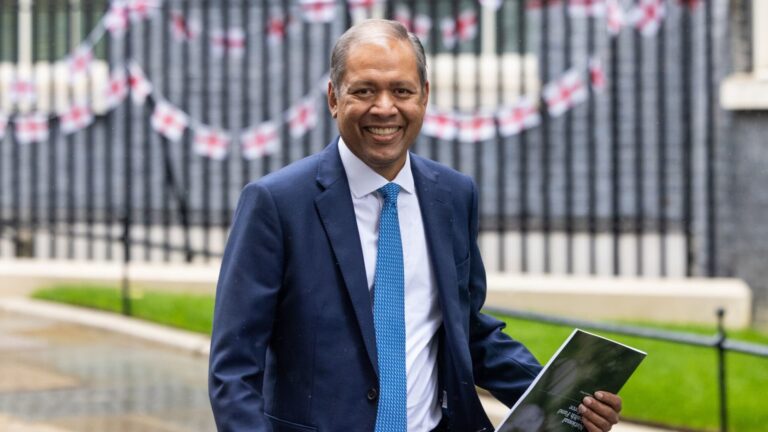Barclays CEO Warns Against Increased Bank Taxes in the UK
C.S. Venkatakrishnan, the Chief Executive of Barclays, recently expressed concerns regarding a proposal to raise taxes on banks in the United Kingdom. He highlighted that such a decision could lead to reduced hiring and decreased lending, which would have adverse effects on the UK economy. With Britain already facing high tax rates for the banking sector, the CEO emphasized that further tax increases could stifle economic growth.
Current State of Banking Taxes in the UK
In his remarks, Venkatakrishnan pointed out that the UK’s banking sector is currently taxed at a rate of 48%. This figure is significantly higher compared to other major financial hubs like New York, which stands at 26%, and even the highest in Europe, which is around 39%. The Barclays CEO categorizes the proposed tax increase as “facile and fallacious logic,” asserting that adding more financial burdens is not a sustainable path for the country’s economic recovery.
The Impact of Tax Burden on Economic Growth
Venkatakrishnan stressed that increasing the tax surcharge on banks would compel them to “find ways to get greater productivity,” which could translate into cutting back on hiring and issuing less credit into the UK economy. He noted that the financial services sector plays a pivotal role in the UK economy, accounting for about 10% of its total output and serving as a key source of export revenue.
Government’s Fiscal Challenges
The UK government is reportedly considering raising the bank surcharge by as much as 2% to address an estimated £20 billion budget deficit. This proposal comes in the wake of rising inflation expectations that have pushed up bond yields, leaving policymakers with limited options for raising revenue or cutting spending. The financial landscape remains precarious, further complicating the government’s fiscal strategy.
Barclays’ Positive Performance Amid Challenges
Despite the difficult environment, Barclays has shown resilience. The bank’s shares have risen by 40% in 2025, and it recently reported a near-record net profit of approximately £6 billion. This performance underscores the potential for growth within the financial sector, even when faced with high taxation and regulatory changes.
A Call for Long-Term Investment
Instead of focusing on increasing bank taxes, Venkatakrishnan advocates for more strategic government spending aimed at bolstering long-term investments. He emphasized the need for investments in housing, infrastructure, and overall productivity enhancement. “Productivity is what’s been declining in the UK,” he asserted, indicating that such investments could form the bedrock of future economic stability.
Concluding Remarks on Government Policy
While criticizing the proposed tax hike, Venkatakrishnan did not shy away from acknowledging the current government’s pro-business stance. He expressed confidence in their understanding of the financial sector’s importance, suggesting that policymakers are attempting to balance taxation with the needs of businesses. This dual focus is essential for fostering a robust economic environment that supports both growth and financial stability.
